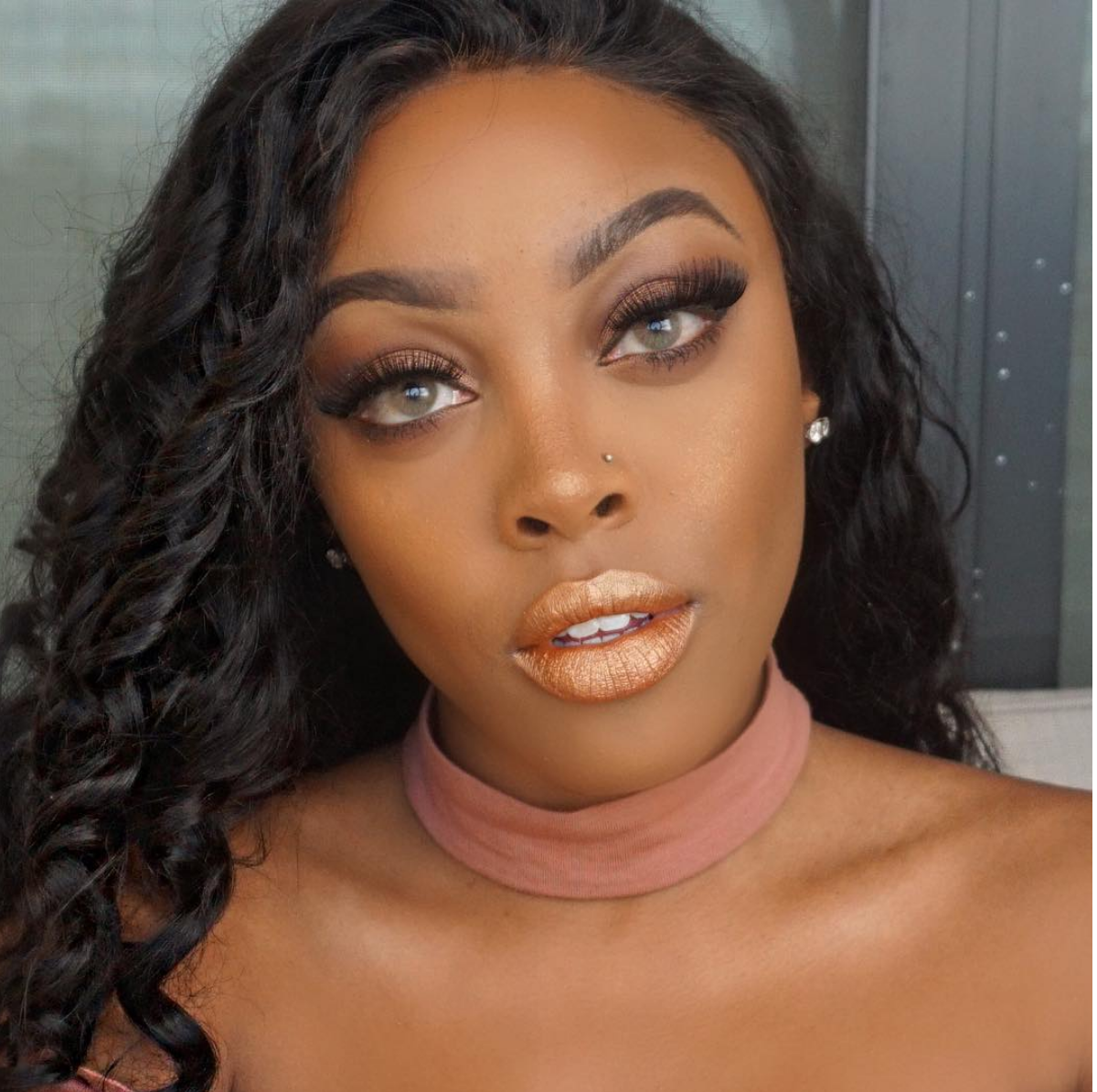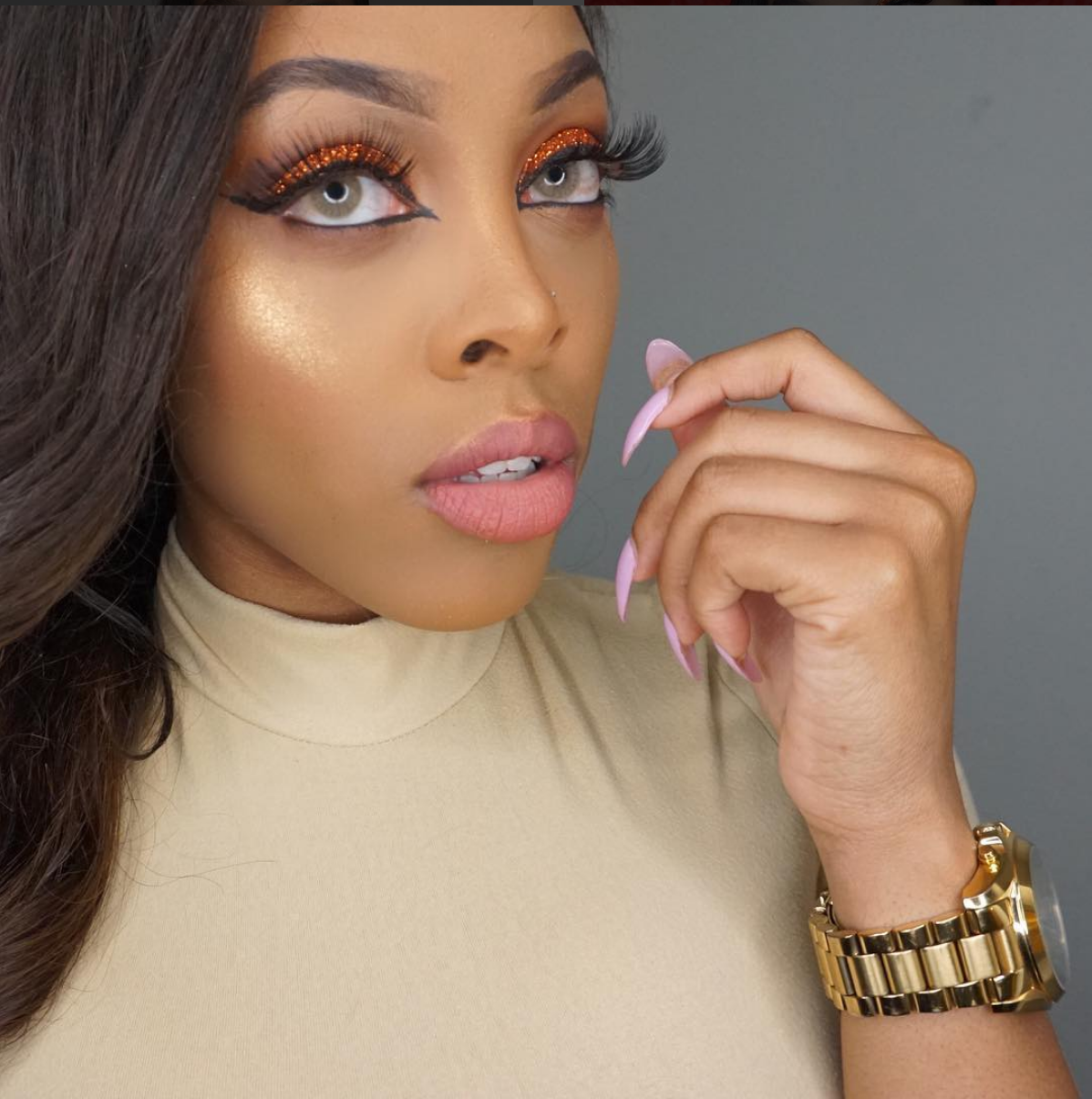Makeup Artist Ashley Wynn
Makeup artists use their talents and their tools to makeover, transform, and improve a person’s face (and sometimes their body). Their work corrects imperfections, highlights positive attributes, and remedies issues. Whether they are highlighting cheekbones for a special event, perfecting the smoky eye for a fashion shoot, or applying prosthetics for theatrical productions, makeup artists are truly artists in their own right..
 Makeup artists working in film, theater, television, and commercials may be required to perform special effects makeup or apply prosthetics. In theater, television, and film jobs, makeup artists may sign on to work for an extended period of time, while makeup artists working in the special events industry, like weddings, for example, are usually hired for the day. In the creative, fashion, and special events industries, makeup artists often work as freelancers or independent contractors, while those working in salon and spa settings may work as either employees (usually on a commission basis) or as independent contractors, where they rent booth space from the salon owner.
Makeup artists working in film, theater, television, and commercials may be required to perform special effects makeup or apply prosthetics. In theater, television, and film jobs, makeup artists may sign on to work for an extended period of time, while makeup artists working in the special events industry, like weddings, for example, are usually hired for the day. In the creative, fashion, and special events industries, makeup artists often work as freelancers or independent contractors, while those working in salon and spa settings may work as either employees (usually on a commission basis) or as independent contractors, where they rent booth space from the salon owner.
Makeup artistry cannot be undervalued, as the face is used to make a first impression; capture and hold attention, and communicate with others. Through the application of cosmetics and the skilled use of specialized techniques, makeup artists make the face into a masterpiece of expression. Many makeup artists, particularly those working as independent contractors or those operating their own makeup artistry businesses, must have an excellent knowledge of business and management principles.
The work involves creating images and characters through the medium of make-up, hairstyles and prosthetics according to a brief. In the role you'll interpret the make-up requirements of clients to produce both a creative and technically accurate visual representation. This may involve very basic make-up for a TV presenter through to more complex period make-up or special effects. Depending on the nature of the job, you could work alone, as an assistant to a more senior colleague or as part of a make-up design team.
The majority of make-up artists work on a self-employed/freelance basis. Freelancing is often an essential pre-requisite for the very limited number of permanent jobs. Professionals are contracted for projects, either directly or through an agent. Many make-up artists initially work for free or for a small fee on low-budget productions or editorial shoots, to build up a record of published work and gain experience. However, entrance is generally becoming formalised and candidates will often undertake a number of specialist HNDs in make-up artistry as a precursor to freelance industry experience and traineeships.
Quotes From makeup legends
Back in the day, mascara wasn't created in a vial with a brush applicator, but in a dry cake format. "What was great about that application is that you could apply the cake with a brush to coat your lashes and then use a brush to create liner for your eyes," explains Gàl-Csiszar. "But when Maybelline first created the liquid base formula in a vial with a brush, the duality of the old school formulation became obsolete as the newer formulation flaked when you tried to use it as a liner."
About Makeup
The earliest historical record of makeup comes from the 1st Dynasty of Egypt (c.3100-2907 BC). Tombs from this era have revealed unguent jars, which in later periods were scented. Unguent was a substance extensively used by men and women to keep their skin hydrated and supple and to avoid wrinkles from the dry heat. The women of Egypt also decorated their eyes by applying dark green color to the under lid and blackening the lashes and the upper lid with kohl, which was made from antimony (a metallic element) or soot. It is believed that the Jews adopted the use of makeup from the Egyptians, since references to the painting of faces appear in the New Testament section of the Bible.
Contact information:
 Makeup artists working in film, theater, television, and commercials may be required to perform special effects makeup or apply prosthetics. In theater, television, and film jobs, makeup artists may sign on to work for an extended period of time, while makeup artists working in the special events industry, like weddings, for example, are usually hired for the day. In the creative, fashion, and special events industries, makeup artists often work as freelancers or independent contractors, while those working in salon and spa settings may work as either employees (usually on a commission basis) or as independent contractors, where they rent booth space from the salon owner.
Makeup artists working in film, theater, television, and commercials may be required to perform special effects makeup or apply prosthetics. In theater, television, and film jobs, makeup artists may sign on to work for an extended period of time, while makeup artists working in the special events industry, like weddings, for example, are usually hired for the day. In the creative, fashion, and special events industries, makeup artists often work as freelancers or independent contractors, while those working in salon and spa settings may work as either employees (usually on a commission basis) or as independent contractors, where they rent booth space from the salon owner. 